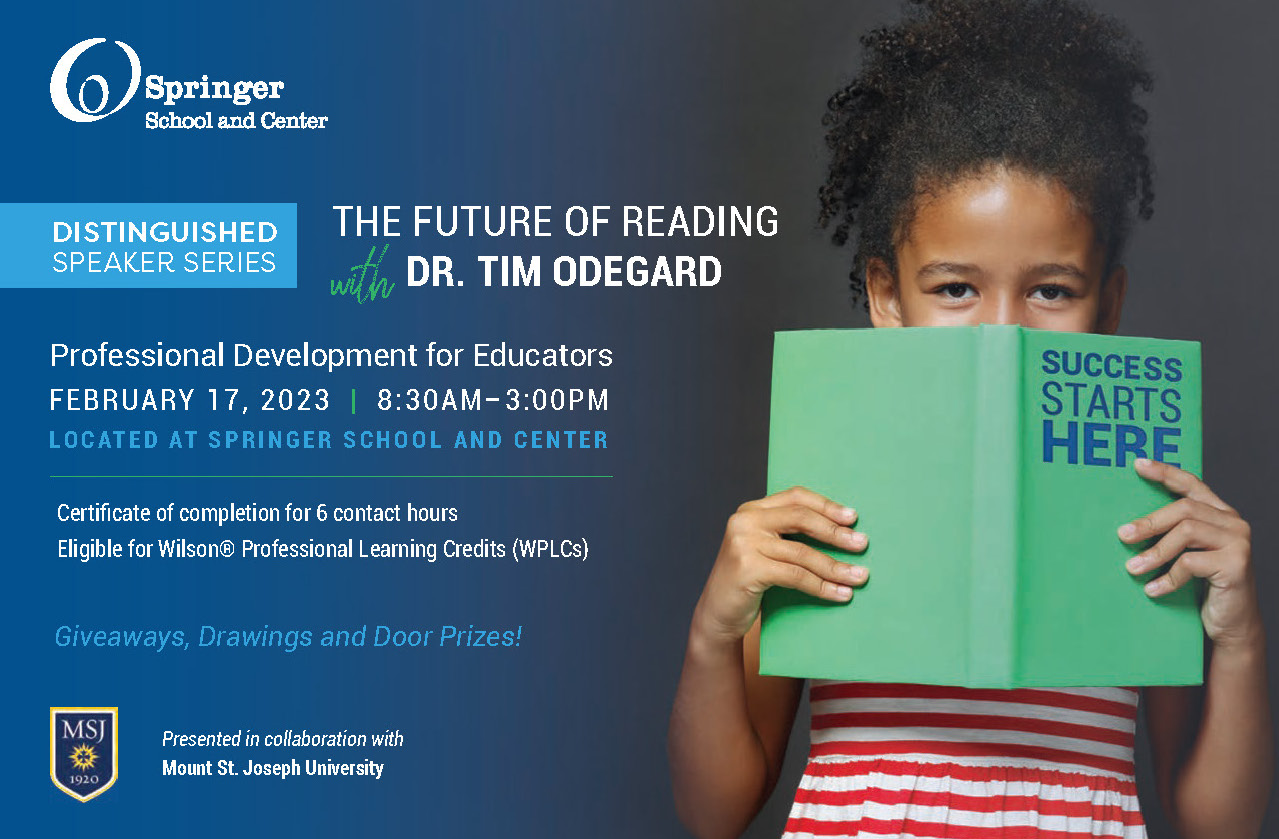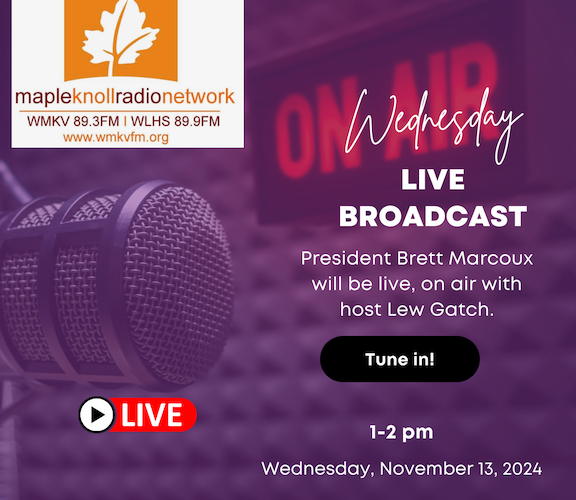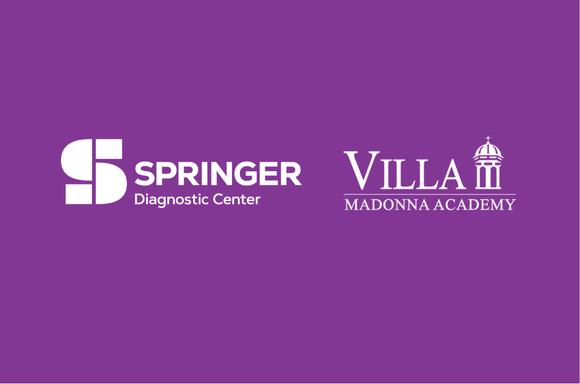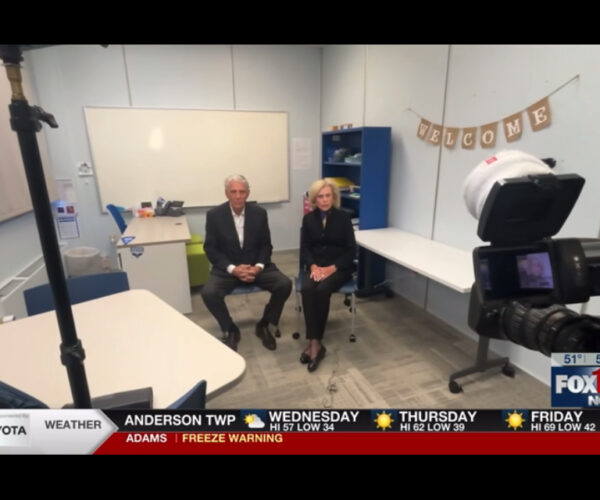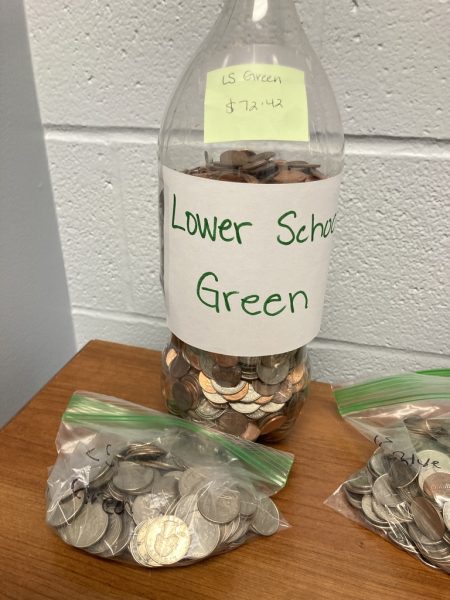
School-wide Contributory Activity
November 30, 2022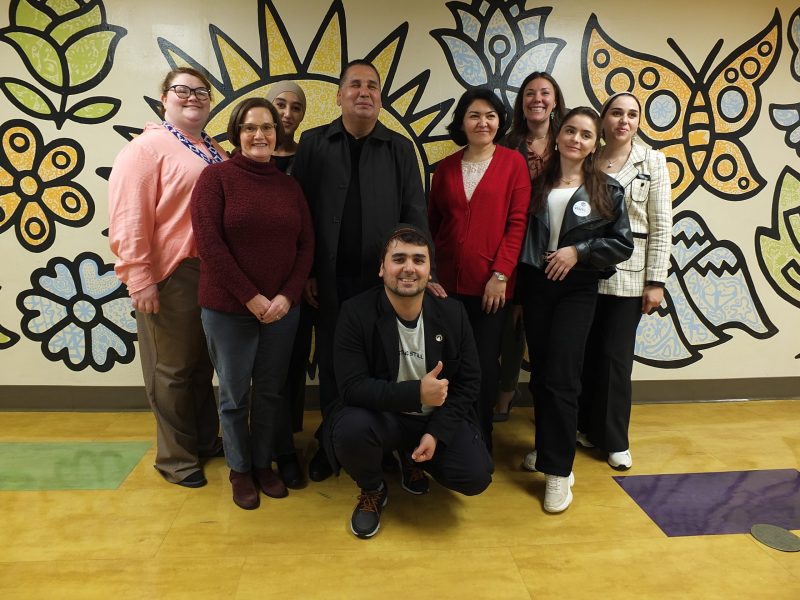
International Guests Visit Springer
December 9, 2022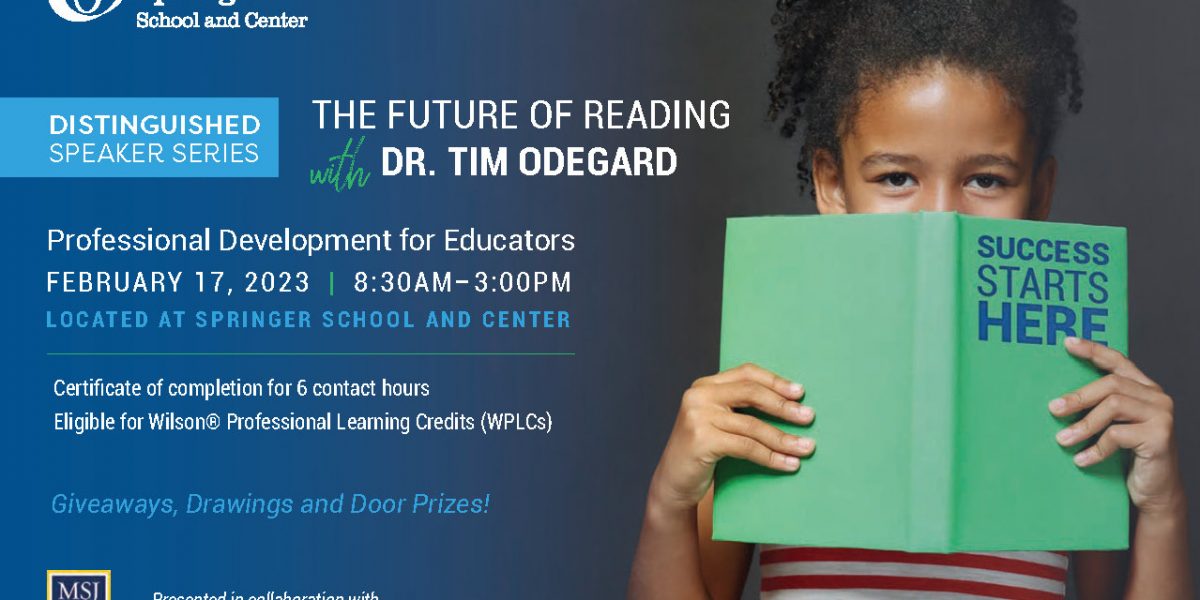
As Ohio slowly prepares to implement the recently enacted dyslexia screening legislation, Springer School and Center aims to help teachers prepare to establish robust screening processes and effectively teach struggling readers.
Recognition of dyslexia as a critical challenge to literacy in children has prompted almost all states to adopt legislation to address the issue. While Ohio only recently passed a dyslexia law, Cincinnati is fortunate to be home to one of the state’s few schools with a much longer history of teaching struggling readers, successfully. Founded in 1971, Springer School and Center is dedicated solely to providing academic instruction that supports learning differences including dyslexia.
By embracing evidence-based reading practices as an integral part of the curriculum, Springer has become a highly sought resource for students and their families as well as educators in the region. Through the outreach arm of the organization, Springer’s Center, high-quality teacher training programs are offered to schools and educators to help them recognize the signs of dyslexia and support their students using proven and effective reading instruction.
Student growth in schools around the region is what Springer hopes to promote through its Center programs. To this end, Springer’s Center is hosting Dr. Tim Odegard for a parent-focused discussion on dyslexia on February 16th at 6:30 and an all-day professional development session for educators on February 17. As one of the top figures in reading science, Dr. Odegard has numerous recognitions and works closely with the International Dyslexia Association. Dr. Odegard is also the brilliant mind behind the Ohio Department of Education’s online Introductory Dyslexia Course teacher training modules.
Odegard aims to help educators “understand what children need to learn to be proficient readers and how they should teach this.” Odegard asserts that most children in the United States would qualify as struggling readers and maintains that structured literacy instruction is effective for all young readers. He asserts “there are core instructional principles and areas of instruction that should be taught for the betterment of all children.”
Springer School and Center is built on the belief that identifying and providing appropriate instruction can be life-changing to a struggling child. They have utilized structured literacy instruction for many years and in 2019 adopted the Wilson Reading System® for grades 1-8.
Reading Specialist and Licensed Wilson® Therapist Cari Kelly describes the difference seen in students who receive instruction that meets their needs. “Children’s self-esteem begins to blossom, and their willingness to want to read drastically changes. When children begin to break the code and match sounds to letters and then begin to sound out words – children begin to gain meaning from their reading!”
At Springer, student transformation is witnessed every year by teachers and parents. When dyslexia is addressed effectively, “It can be a game changer.” Director of Enrollment and Growth Carmen Mendoza, M.Ed. continues, “Self-confidence improves, their metalinguistics of language improves, often these students become their own self-advocates, and their social and home lives improve.”
Registration for both presentations of The future of Reading with Tim Odegard is online now at Springer-LD.org. A certificate of attendance applicable to CEUs will be provided for professionals attending the February 17 program. Participants are also eligible for Wilson Professional Learning Credits.
Established in 1971 Springer School and Center is the region’s only independent school designed entirely for students with learning disabilities and learning differences such as dyslexia, ADHD and executive function challenges. Springer’s Center is devoted to educating parents and caregivers, as well as teachers in both public and independent schools, how to support and advocate for their struggling students. Learn more at Springer-LD.org.
Ohio House Bill 436 details requirements for student screening and monitoring, and professional training for teachers. Per the legislation, schools will begin to screen students in K-3 for characteristics of dyslexia during the 2023-2024 school year. Students who are identified as showing the characteristics will be monitored and further assessed to determine what reading interventions may be needed. Teachers in grades K-3 and intervention specialists in grades K-12 will be required to complete eighteen hours of training in structured literacy by various deadlines before the fall of 2025.


